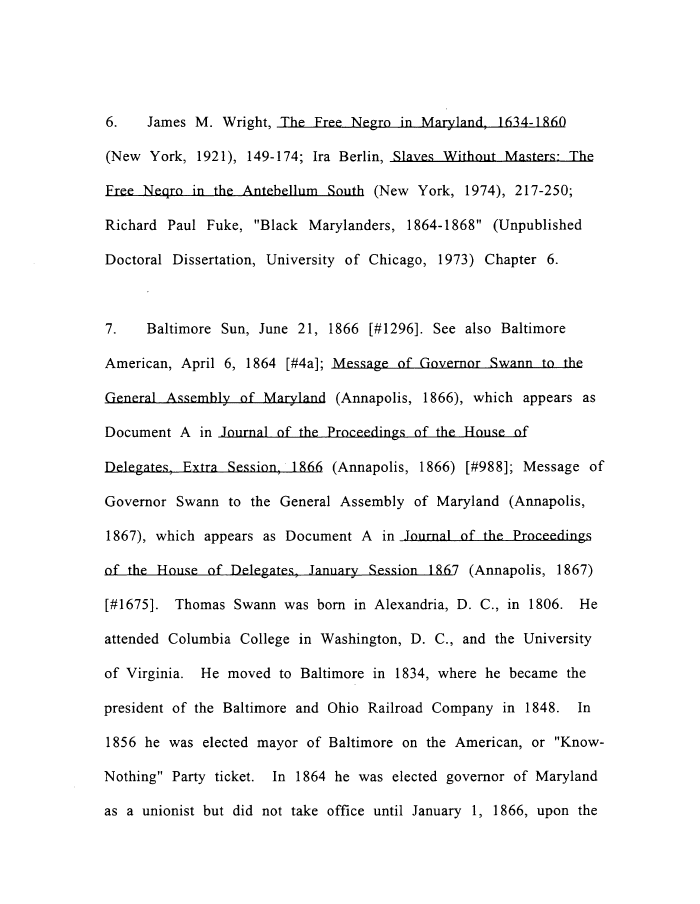 |
||||
|
TASK FORCE TO STUDY THE HISTORY AND LEGACY OF SLAVERY IN MARYLAND (Final Report) 1999/12/31 MdHR 991422 MdHR 991422, Image No: 308 Print image (41K) |
 |
||||
|
TASK FORCE TO STUDY THE HISTORY AND LEGACY OF SLAVERY IN MARYLAND (Final Report) 1999/12/31 MdHR 991422 MdHR 991422, Image No: 308 Print image (41K) |
| 6. James M. Wright, The Free Negro in Maryland3 1634-1860 (New York, 1921), 149-174; Ira Berlin, Slaves Without Masters- The Free Negro in the Antebellum South (New York, 1974), 217-250; Richard Paul Fuke, "Black Marylanders, 1864-1868" (Unpublished Doctoral Dissertation, University of Chicago, 1973) Chapter 6. 7. Baltimore Sun, June 21, 1866 [#1296]. See also Baltimore American, April 6, 1864 [#4a]; Message of Governor Swann to the General Assembly of Maryland (Annapolis, 1866), which appears as Document A in Journal of the Proceedings nf the House of Delegates3 Extra SessionJ 1S66 (Annapolis, 1866) [#988]; Message of Governor Swann to the General Assembly of Maryland (Annapolis, 1867), which appears as Document A in Journal of the Proceedings of the House of Delegates^ January Session 1867 (Annapolis, 1867) [#1675]. Thomas Swann was born in Alexandria, D. C., in 1806. He attended Columbia College in Washington, D. C., and the University of Virginia. He moved to Baltimore in 1834, where he became the president of the Baltimore and Ohio Railroad Company in 1848. In 1856 he was elected mayor of Baltimore on the American, or "Know-Nothing" Party ticket. In 1864 he was elected governor of Maryland as a unionist but did not take office until January 1, 1866, upon the |